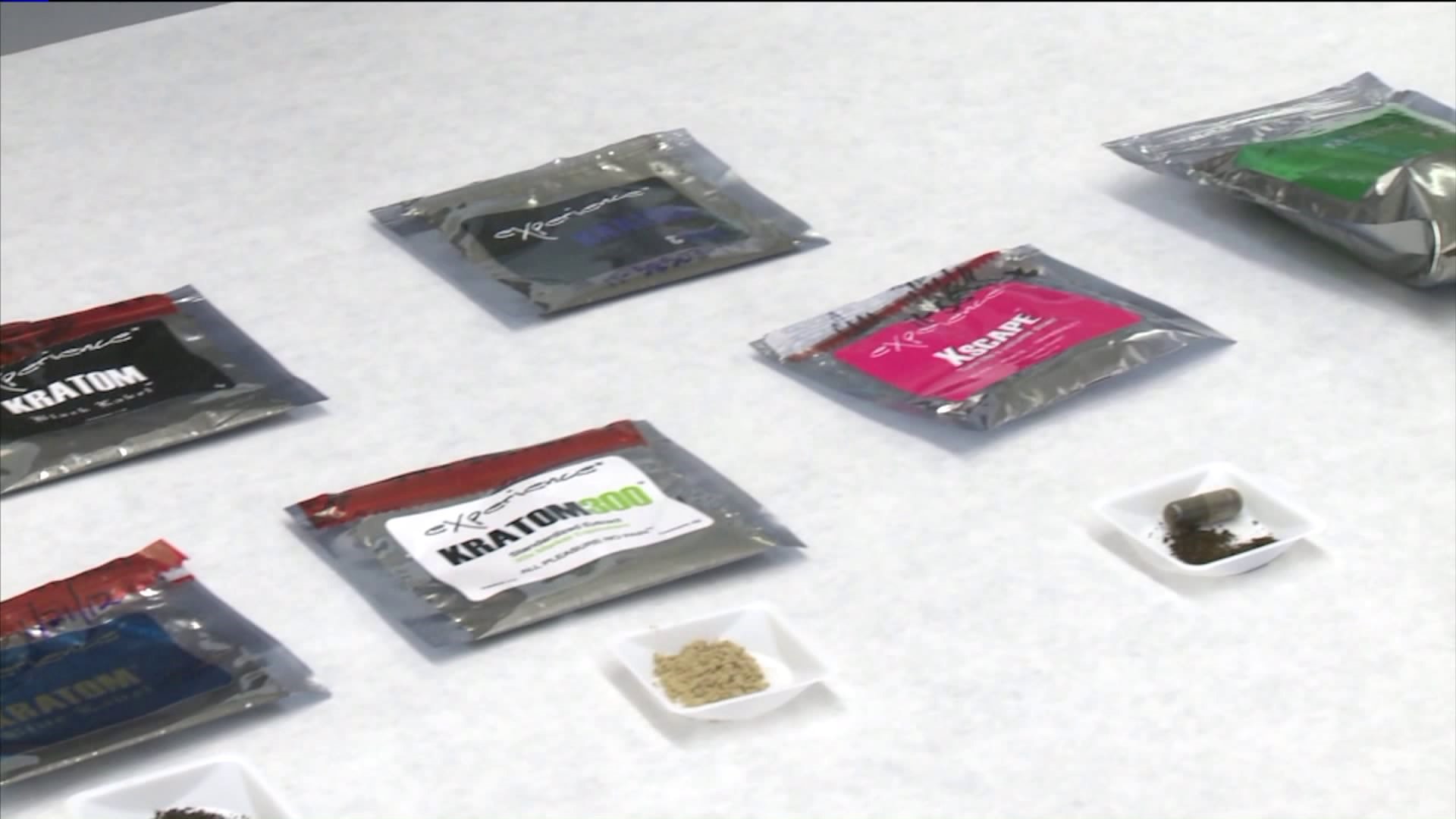HARTFORD -- It’s not often the D.E.A. changes its mind after deciding to make a drug illegal, but it happened last year, when the agency delayed its decision on a plant called Kratom, a natural opioid that’s legal in Connecticut, but currently banned in six states.
The D.E.A.’s reversal may have made it even more controversial – across the country, some people have blamed it for deaths of loved ones, others have hailed its pain-relieving properties, and still others are using it as an attempt to slowly detox from opioid addiction.
Here’s what we know and don’t know about the plant, courtesy of Dr. Michael White, from the UConn School of Pharmacy Practice.
Kratom, or Mitragyna speciosa, is a member of the coffee family, and can easily be ground into a powder or combined with other additives, so it is sold in many forms in tea shops, gas stations, and even vending machines in some places.
It’s used for a variety of reasons, as a recreational drug and as a pain-reliever. Dr. White said its pain-relieving properties are modest.
It’s most controversial use is also one of its oldest uses – as a sort of all-natural methadone, a weak opioid that people use to try to wean themselves off an addiction to stronger opioids, like heroin.
“Since the early to mid-1800’s people were using this product or recommending that this product could be used in order to get people off of opium,” said Dr. White. “The side effects associated with it are a lot less than other opioids.”
Dr. White said, it Kratom’s natural form, it carries much less risk for depressed breathing as it’s other opioid cousins, making it less of a deadly overdose risk. These days, there is also significantly less of a stigma than there is from going to a methadone clinic. However, despite all we don’t know about Kratom, we know it does have some drawbacks.
“There are no well-done studies that actually shows that it works,” said Dr. White. More studies would need to be done to judge its true effectiveness. There are enough studies, though, to at least suggest that Kratom, like other opioids, is addictive.
“In Southeast Asia where its use is really rampant, in one large study, 85 percent of the people who ended up trying to stop taking Kratom at some point, none of the people were successful,” said Dr. White.
Kratom is also known to interfere with the liver’s ability to metabolize and get rid of other drugs, like other opioids. This could make Kratom especially perilous for an addict who uses it to wean off heroin or other drugs, only to relapse. Many overdose deaths involving Kratom have also involved another drug.
“It may not be that [Kratom] is innocent and [a second drug] is guilty, it could be that they are co-conspirators, and that together they are more risky than they would have been alone,” said Dr. White.
Kratom is also unregulated in the 44 states where it is legal, so there’s no guarantee that the consumer who buys Kratom is actually getting Kratom. Dr. White said some tests on commercial Kratom have shown unnaturally high concentrations of one of the plant’s secondary active components. This adulteration can cause users to cause the respiratory distress that natural Kratom doesn’t cause.
Dr. White said, at this point, Methadone and Suboxone have been proven to be both safer and more effective for fighting withdrawal, so it only makes sense, at this time, to view those alternatives as superior to Kratom.
So why not make Kratom illegal?
“One of the big controversies is whether or not you should ban the product or you shouldn’t ban the product,” said Dr. White. He said doing so would make it harder for researchers to find out more about the drug, which could be a net negative in the long run, should Kratom prove to have benefits.
“When you try to take something, and you ban it, you make it incredibly hard for people to do any kind of research in that area,” he said, “so there has to be a middle ground.”
Dr. White suggested for now, treating Kratom like some decongestants, which can be abused or used to make amphetamines in the wrong hands.
“Because of that, they’ve taken it away from over-the-counter, and they’ve put it behind the pharmacy counter,” he said.
Dr. White said putting Kratom behind the counter would help quality control, curb abuse, and also allow pharmacists to make sure it won’t interfere with any other medications. For now, though, it’s still on the D.E.A.’s "drugs of concern" list because of its abuse potential.

